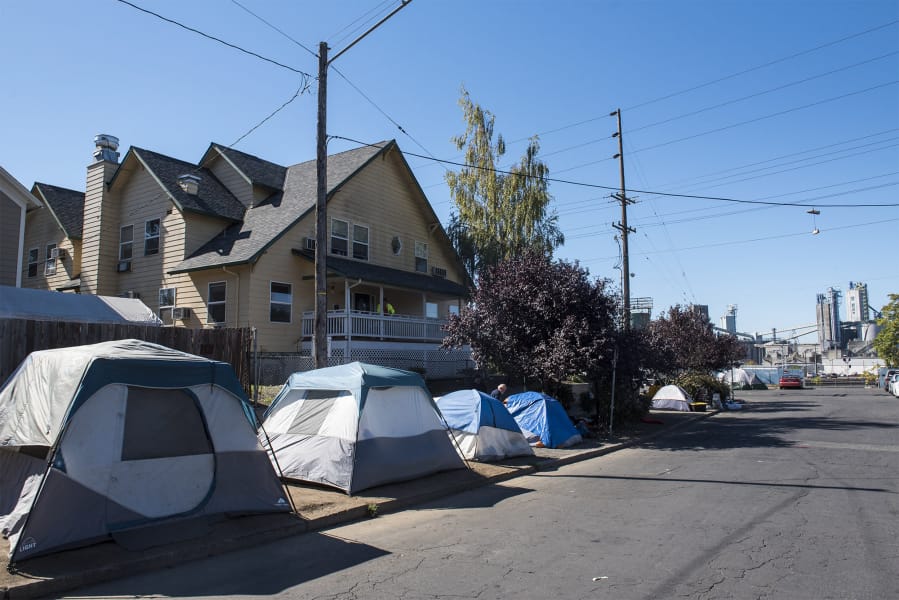Monday’s Vancouver City Council meeting represented the culmination of years of collaboration between service providers, business stakeholders and neighborhoods to repeal and replace the Human Service Facilities Siting ordinance.
The ordinance was first implemented in 1991 and limited where human service facilities could locate. The council and city staff first began reviewing the ordinance in July 2016 to address the potential for discrimination in violation of the Fair Housing Act, specifically discrimination based on physical abilities and familial status.
The new ordinance, which was unanimously approved, went through several iterations before the council finally felt comfortable enough to move a proposal forward to a public hearing. Human service facilities can now locate where like services are allowed. Shelters can locate wherever commercial lodging is permitted, for example, and food and clothing pantries can locate where retail businesses are allowed.
29-month undertaking
Most recently in the process spanning 2 1/2 years, the Planning Commission took a second look at its original proposal at the council’s behest. Many on the city council expressed concern regarding proposed performance standards and the potential negative impacts on social services. The commission doubled down on its original proposal — known as Option A, which would have required service providers to seek conditional use permits and adhere to performance standards — but also forwarded Option B, which did not include those requirements.
The council preferred Option B.
So did former City Attorney Ted Gathe, who penned the 1991 version of the ordinance.
Councilor Alishia Topper borrowed from Gathe’s written testimony to express her support for the ordinance.
” ‘The adoption of Option B siting ordinance ensures that the siting of social service facilities in the future will be done in a more just, equitable and legal manner,’ ” Topper said. “That truly is the goal of updating this ordinance. Equitability, making sure it’s just and making sure it’s legal.”
Service providers were also supportive of the new ordinance.
Amy Reynolds, deputy director for Share, said the measure — and specifically Option B — offers the most equitable treatment for businesses and nonprofits.
Kate Budd, executive director of Council for the Homeless, said the reality is that the former ordinance disproportionately impacts people experiencing homelessness. The new rule will make it easier for nonprofits to locate where they can best serve those experiencing homelessness.
Some community members continued to express their concern with the ordinance and asked the council to reconsider its decision to repeal. The most common concern is that a lack of disbursement requirements would negatively impact low-income neighborhoods and lead to unforeseen consequences.
Councilor Ty Stober said the new ordinance is needed to ensure the law is being applied equality to community members regardless of their social status.
“That being said, every single business within this city, every single organization within this city should have a social responsibility to our community to operate in a responsible way and be good neighbors,” Stober said. “I say that to our social service providers as much as I say that to the nightclub that is causing neighbors to be very uncomfortable in their homes.”
Councilor Linda Glover added that the city should work to ensure it isn’t discriminating against someone based on their ability to pay.
“I don’t think that’s who we want to be,” Glover said.




